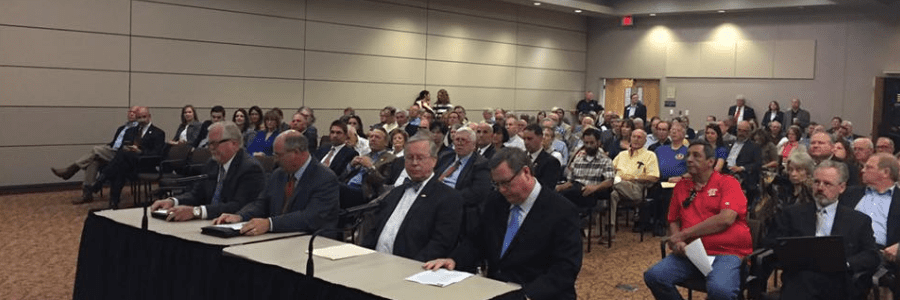Local news outlets are working hard to help local officials discredit conservative lawmakers who’ve proposed a radical idea—giving Texans more control over their property taxes.
Unlike what a recent Dallas Morning News article wrongly suggests, the Senate’s reform plan does not impose a “state cap” on property taxes—it simply lowers the amount localities can raise taxes without voter approval.
The DMN went on to criticize “misleading” data used by State Sen. Paul Bettencourt (R-Houston) to show how quickly tax burdens have grown. They cite numerous sources – including some from “liberal” think tanks – to argue why taxpayers should shut up and stop complaining. But perhaps the easiest statistic to understand is one their rebuttal failed to mention.
The cost of all local governments in Texas has increased 50 percent over the last twenty-five years, after adjusting for population growth and inflation. In other words, Texas’ localities are collecting 50 percent more tax revenue per person today – after adjusting for inflation – than in 1992.
The reason for this phenomenon is quite simple. As population growth causes land values to rise, governments refuse to lower their tax rates, with rare exception. This allows them to raise taxes on existing residents and collect additional revenue from new taxpayers, without changing their tax rate.
The Texas Municipal League – a government lobbying association – continues to incorrectly claim Bettencourt’s reform would “cap” the growth of city and county budgets, thereby hurting their ability to pay for police and other needs. Officials such as Arlington’s Mayor Jeff Williams and Frisco’s Mayor Maher Maso have also criticized lawmakers using similar rhetoric.
But despite their misleading title, even the DMN’s piece admits TML’s claim is factually incorrect. Bettencourt’s proposal to lower the “rollback” rate does not actually cap what localities can tax—it simply places the tax increase before voters.
This “rollback” limit is currently set at 8 percent. It allows cities and counties to collect 8 percent more revenue from the same properties it taxed the previous year before voters have any recourse. But the law does not automatically require voter approval to break the limit. Bettencourt’s proposal would both lower the limit to 4 percent and require voter approval to exceed it.
If the Senate’s proposal passes, cities such as Frisco would have to obtain voter approval to continue to their tax-hiking habits. Rising appraisals in Frisco means officials need to cut tax rates almost every year to prevent collecting significantly more money from the same taxpayers. To date, they have refused to do so, raising taxes 38 percent in total over the last five-years.
Texas homeowners pay the 4th highest property taxes in the nation, and are nearly the highest among the eight other states that do not levy a personal income tax.
The Senate’s proposal to lower the rollback rate and empower voters should be the first of many steps in reforming an outdated tax code. Local officials who echo misleading “growth” arguments from government-lobby groups either don’t understand our tax system or are afraid of accountability from constituents. Perhaps it’s both.




